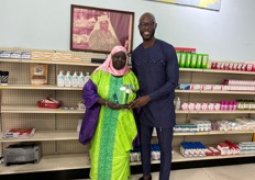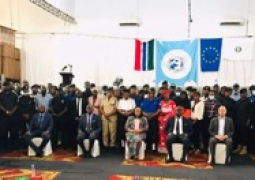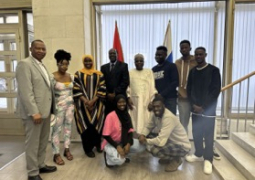
The confab was organized in line with the KAIPTC's strategic objective of enhancing African capacity to develop relevant structures for promoting peace and security.
The event, which attracted relevant stakeholders, was meant to synthesise the finding from the study as well as offer policy recommendations on accelerating efforts to build capacities in atrocity prevention.
Maj. Gen Francis Ofori, commandant of the centre, acknowledged that Africa has been slow in creating the enabling spaces and effective national mechanisms for atrocity prevention.
The pace of implementation of the norm, he observed, is outmatched by the incidence of war crimes and crimes against humanity unfolding on the continent.
“The political will to address the structural weaknesses and proximate causes that engender the commission of atrocity crimes in Africa appears inadequate. The situation in West Africa is even worrying. There is myriad of security challenges, ranging from recent democratic reversals, inter-ethnic conflicts, evolving threats of violent extremism, governance deficits and post-electoral contestations, challenging the already fragile state structures and mechanisms for atrocity prevention”.
He revealed that the contents of various reports are expected to generate discussions, and debates to inform policy on the domestication of R2P norm in the West Africa region.
“I therefore urge you all to be frank, and robust in your engagements, in order to inspire policy-oriented recommendations aimed at making the promise of ‘never again’ a reality.”
For his part, Hussein Thomasi, Solicitor General, who represented the Attorney General and Minister for Justice, said non- implementation of decisions of the African Commission on Human and Peoples’ Rights and the judgements of the African Court on Human and Peoples’ Rights could raise serious questions of condoning impunity on the African continent by Africans.
This, he observed, is contrary to the Constitutive Act of the African Union which has one of its cardinal principles as “respect for the sanctity of human life, condemnation and rejection of impunity and political assassination, acts of terrorism and subversive activities.
Domestic prosecution of international crimes, he added, is quite complex, adding that effective prosecution at the domestic level requires qualified investigators and prosecutors as well as judges and most significantly an appropriate tribunal for the conduct of such prosecutions.
‘The most serious crimes of concern to the international community as a whole must not go un-punished and that their effective prosecution must be ensured.”
Also speaking, Serigne Ka, representative of the ECOWAS Commission reminded that poverty, food insecurity, malnutrition, diminishing natural resources triggered by climate change effects and recurrent natural disasters such as the floods experienced in 2020, are factors fostering vulnerability and putting millions of people at risk in the region.
The confab, he said, is also taking place within the context of the COVID-19 pandemic which continues to exacerbate the risks and drivers of conflict, threatening social cohesion, welfare of citizens and economic recovery.
“The situation of human security is not at its best in the region. Indeed, human and drug trafficking as well as the proliferation of small arms and light weapons continue to undermine the peace and security architecture of the region,”
Read Other Articles In National News
GHM donates 140 bed lockers to Tanka Tanka hospital
Feb 22, 2022, 1:13 PM




